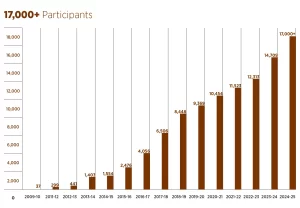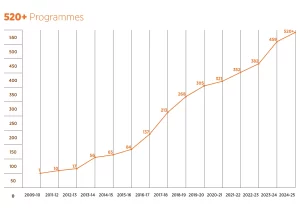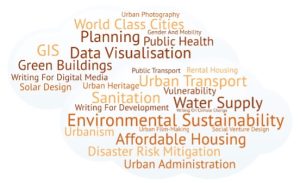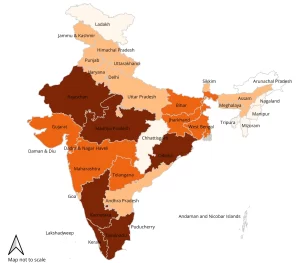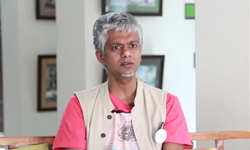The training programmes at IIHS offer institutions and practitioners new frameworks of knowledge, backed by a cohesive package of skills. These bear a unique focus on practice in Indian cities and are taught by a dynamic group of internal faculty, and academic and professional advisors.
The Programme’s portfolio spans sectors, disciplines and scales of practice, and seeks to intervene at three levels:
- Strategic perspectives and orientation of the practitioner to urban challenges
- Knowledge frameworks employed to appraise such challenges
- Execution skills to tackle them effectively and sustainably
The Programme collaborates with key institutions in the urban sphere for various training and capacity building programmes. It conducts workshops and courses in thematic areas such as Affordable Housing, Water and Sanitation, Geospatial Technology, Building Resilience, Climate Change and Disaster Risk Reduction. Under these partnerships, the Programme has trained public sector functionaries across hierarchies and geographies in India.




